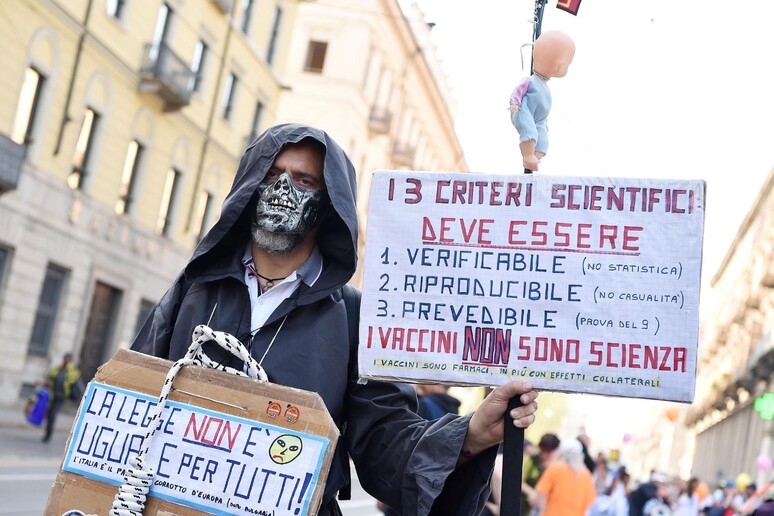The COVID-19 pandemic has highlighted
increasing irrationality among Italians and some three million
of them do not think that COVID-19 exists, think tank CENSIS
said in its 55th annual report on Friday.
"Irrationality is spreading like wildfire," CENSIS said,
stressing that the three million COVID deniers amounted to 5.9%
of the adult population.
A further 10.9% think that vaccines are useless, the think tank
said.
Some 5.8% of the population think that the world is flat.
"The irrational has infiltrated the social fabric," CENSIS
stressed.
"Alongside a reasonable and sane majority there is a wave of
irrationality," the report said, stessing that "the situation is
unlikely to improve in the short term".
"Society needs a concrete and robust project in order to recover
from all this," said the think tank.
The pandemic has also exacerbated poverty and increased
vulnerability in Italy, said the researchers.
In 2020, it said, some two million Italian families were in
absolute poverty, a rise of 104.8% on 2010 when there were
980,000.
The rise in poverty was sharper in the north, +131.4%, than in
the centre (67.6%) and south (+93.8%), CENSIS said.
"The virus has also accentuated a sense of vulnerability," the
think tank added.
Some 40.3% of Italian feel insecure while students suffer
increasing levels of depression, anxiety, and existential angst.
"From the psychological standpoint, the prolonged period of
pandemic has provoked significant side effects.
Some 81" of school heads and university administrators have
reported that students are suffering from "extreme malaise", the
report said.
Students' scholastic performance has "worsened considerably as a
result," CENSIS saidn the report, citing the same sources.
"Italian society has mutated and has gone through crises and
emergencies with the continual intertwining of emerged and
submerged realities, both daily and long term.
"Today this is no longer enough.
Continual adaptation is no longer enough, and our overall
institutional system must rethink itself.
"We are faced with a society that will only be able to recover
via a project and not by spontaneous evolution."
CENSIS said it was now time for "a serious programme, structural
reforms, and public intervention with courageous choices".
ALL RIGHTS RESERVED © Copyright ANSA











